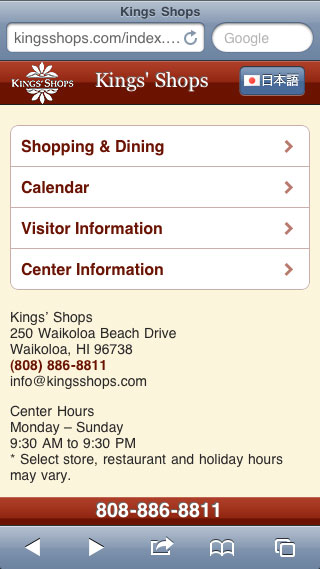Reaching your mobile audience is important.
Are you clear about your options?
There is a lot of talk about ‘apps’ these days and language has gotten murky. Let’s clarify what is meant by a ‘mobile web app’ vs. ‘native app’ and the implications of both.
Web based apps = easier to deploy, less expensive
If your mobile application is mainly used to display your online content, a generic or dedicated mobile website is the right direction for your company.
Web apps use your website content and structure as a foundation. They have tailored navigation, content and images for optimal display on mobile devices. Web apps can have generic display or refined for each device. Web apps use web technology for programming.
Gum Design develops mobile web applications with ‘responsive designs.’ Our mobile websites rescale and serve content based upon the screen size of the device, capitalizing on larger screen real estate available on tablet, while still optimizing for small phone screens/bandwidth. This method best meets our customer needs to deploy web apps quickly and inexpensively with the flexibility to maintain content in-house.
- Reach Larger Audiences. User does not have to download a app, but accesses the content through browser
- Lower Cost and Time to Market. Development is done with web tools instead of special programming languages.
- Instant Updates. Content lives on web server.
- No Censor. iTunes has a review process for apps.
- Low Barrier to Entry.
Examples (use your smart phone! auto-detect):
- Hawaii Forest & Trail (Services)
- Kings Shops (Informational/Multi-language)
- Mauna Lani Realty (Informational)
- Waikoloa Beach Resort (Informational)
- Hamakua Macadamia Nut Co. (Retail Store)
- Kona Historical Society Store (Retail Store)
- Ha Organic Clothing (Retail Store)
- Parker Ranch Store (Retail Store)
Smartphone OS technology: ‘native apps’ = more robust, costly, & intensive
If your application is mainly used offline, a native app will offer a better user experience. Most games are native apps.
Native apps are programmed for a specific device in their operating system language, which means you must create an app for each different device. While these mobile applications are robust, and can delive information when offline, their development, maintenance and deployment costs are high.
- Connectivity. Some content may be embedded in the app.
- Device-based Caching
- Immersive and Richer Experiences.
- Stronger Engagement
- Censored distribution process
- Performance
- Expensive, you need version for apple and android.

